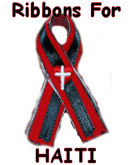 |
Genesis 1:1Now for the word God... Moses used the word Elohim, which is a plural noun. Please bear with me on this... The most general inference and most accepted train of thought is that this stands for the Trinity, the Father, the Son, and the Holy Spirit. However, Calvin made an impressive observation, and one which a few others also argued very strongly, and one which I think should be considered, that this was not intended to identify the Trinity but rather to better define the all encompassing character of God more completely than the singular form can do. Keep in mind that this is not an important issue to salvation, but in regaurd to Gods word one should be open to multiple trains of thought. First, If you are familiar with your Bible, you know there are many names for God, Alpha and Omega, Yahweh, Yehova, I Am, yet these names do not denote different Gods, but rather different aspects of the one God of all powers. Secondly, if this use of the plural form were to introduce the Trinity, then it's use in the second verse, "the Spirit of Elohim moved upon the face of the waters", and Elohim meant all three God heads, then it would also mean the Spirit of the Holy Spirit, or in other words, the Spirit begat itself. Taken further in time to the Birth of Jesus, He too would have begat Himself, but we know that the Son and the Holy Spirit are separate personalities of the same God, different yet One. Thirdly, there is extended use of the plural form of words used by the Hebrews to express the intensity of the idea contained in the singular. Last but not least, the New Testament refers to all three as one, you are Babptized in the NAME, (singlular), of the Father, the Son, and the Holy Ghost. 1 John 5:7 says: For there are three that bear record in heaven, the Father, the Word, and the Holy Ghost: and these three are one. (remember in John Chapter 1, the Word became flesh and walked among us, that is Jesus Christ) For these reasons, I tend to lean towards Calvin's lead that the use of Elohim here was not reveal the Trinity, but rather the all encompassing nature of God Himself, the express God's powers as being much more profound than a singular could respectfully imply.
| ||
|
|
Is that movie Christian or Family Friendly?
Check it out at:
Get complete ratings.
(Thanks Mike)
The opinions from some of my sponsers do not necessarily reflect the views and opinions of Dano, but I believe exploring shared ideas help to form an educated opinion
Christian or news
write articles
and get paid
Homepage Christian Store Articles Bible Studies Bible Challange Prayer Room News Room Links Text Links About Dano's Place contact
© 2005 Dan Dunkin
Please visit our other sites:
The Gourd Reserve / Daily Sales Online
Carmella's Place / Everything makes Scents
The Dunkin Academy


